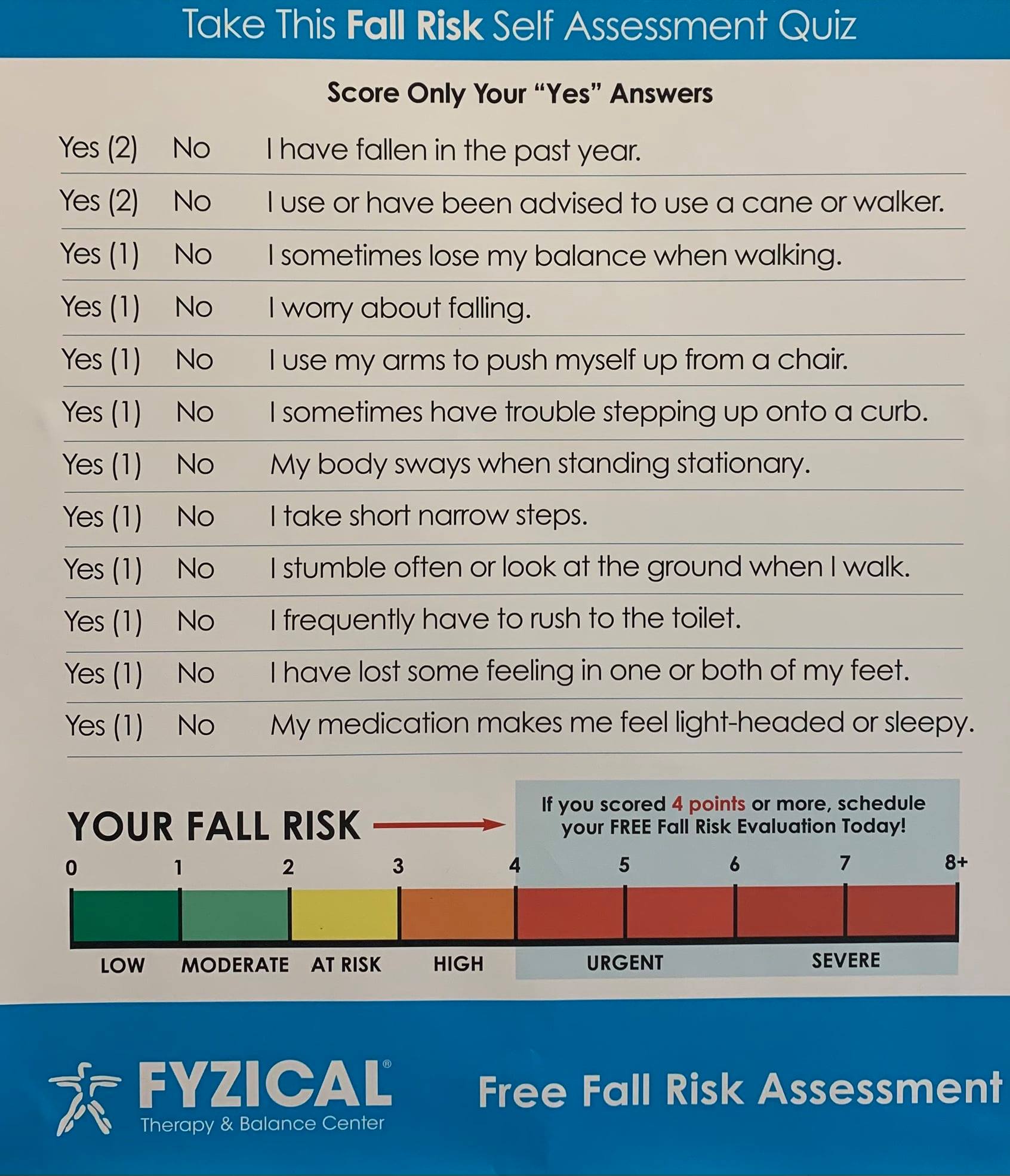More About Dementia Fall Risk
Table of ContentsAbout Dementia Fall RiskWhat Does Dementia Fall Risk Mean?Some Known Details About Dementia Fall Risk What Does Dementia Fall Risk Do?
A loss threat assessment checks to see just how most likely it is that you will certainly fall. The analysis normally includes: This includes a series of concerns about your overall wellness and if you have actually had previous drops or troubles with balance, standing, and/or strolling.STEADI includes testing, examining, and intervention. Interventions are referrals that may reduce your danger of falling. STEADI consists of 3 actions: you for your threat of succumbing to your danger aspects that can be boosted to try to stop drops (for instance, balance troubles, impaired vision) to decrease your threat of dropping by using effective methods (as an example, offering education and learning and sources), you may be asked numerous concerns consisting of: Have you dropped in the past year? Do you really feel unsteady when standing or strolling? Are you fretted about falling?, your copyright will test your strength, equilibrium, and gait, making use of the adhering to fall analysis devices: This examination checks your gait.
After that you'll take a seat again. Your company will examine for how long it takes you to do this. If it takes you 12 seconds or more, it may suggest you are at greater risk for a loss. This test checks stamina and equilibrium. You'll being in a chair with your arms crossed over your breast.
Relocate one foot midway forward, so the instep is touching the big toe of your various other foot. Relocate one foot totally in front of the other, so the toes are touching the heel of your various other foot.
The smart Trick of Dementia Fall Risk That Nobody is Talking About
Many falls happen as a result of several adding aspects; as a result, handling the risk of falling starts with identifying the elements that add to fall risk - Dementia Fall Risk. Some of the most relevant risk variables include: History of previous fallsChronic clinical conditionsAcute illnessImpaired stride and equilibrium, lower extremity weaknessCognitive impairmentChanges in visionCertain high-risk drugs and polypharmacyEnvironmental factors can also raise the threat for drops, including: Insufficient lightingUneven or damaged flooringWet or slippery floorsMissing or damaged handrails and get barsDamaged or poorly equipped equipment, such as beds, wheelchairs, or walkersImproper usage of assistive devicesInadequate guidance of individuals residing in the NF, including those who display aggressive behaviorsA successful loss danger administration program requires a detailed clinical analysis, with input from all participants of the interdisciplinary team

The treatment strategy must likewise include treatments that are system-based, such as those that advertise a secure atmosphere (suitable lights, hand rails, get hold of bars, etc). The effectiveness of the treatments should be reviewed periodically, and the care plan modified as necessary to reflect modifications in the loss danger analysis. Carrying out an autumn danger management system making use of evidence-based ideal practice can lower the occurrence of drops in the NF, while restricting the capacity for fall-related injuries.
Dementia Fall Risk Things To Know Before You Get This
The AGS/BGS standard suggests evaluating all adults aged 65 years and older for fall threat annually. This testing consists of asking clients whether they have fallen 2 or more times in try this web-site the previous year or looked for medical focus for a fall, or, if they have actually not fallen, whether they really feel unsteady when strolling.
Individuals who have dropped once without injury should have their equilibrium and gait examined; those with gait or equilibrium irregularities should receive additional evaluation. A background of 1 loss without injury and without gait or balance troubles does not call for additional evaluation past continued yearly autumn threat screening. Dementia Fall Risk. A loss risk analysis is needed as component of the Welcome to Medicare evaluation

The smart Trick of Dementia Fall Risk That Nobody is Discussing
Documenting a falls background is just one of the high quality indications for autumn avoidance and management. A critical part of threat analysis is a medication testimonial. A number of courses of drugs boost fall threat (Table 2). Psychoactive medicines in certain are independent predictors of drops. These medications tend to be sedating, modify the sensorium, and hinder equilibrium and gait.
Postural hypotension can typically be minimized by minimizing the dose of blood pressurelowering drugs and/or quiting medicines that have orthostatic hypotension as a side effect. Use above-the-knee support tube and resting with the head of the bed elevated may likewise minimize postural reductions in blood stress. The recommended aspects of a fall-focused physical evaluation are received Box 1.

A TUG check out here time higher than or equivalent to 12 secs suggests high fall danger. The 30-Second Chair Stand examination analyzes reduced extremity strength and balance. Being unable to stand up from a chair of knee elevation without using one's arms indicates enhanced loss danger. The 4-Stage Equilibrium examination examines static balance by having the client stand in 4 positions, each gradually more tough.